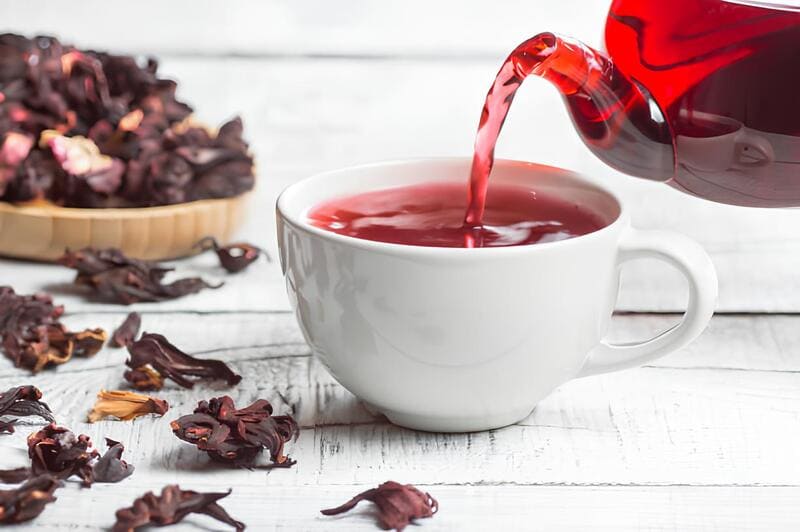
Karkade, or Hibiscus Tea, is a beloved traditional drink in Egypt and many other Arab countries. Especially popular during Ramadan nights, this vibrant red beverage offers a refreshing and tart flavor that perfectly balances the rich, often sweet foods served during the holy month.
Despite its misleading reputation as a cold beverage only, Karkade can be enjoyed both hot and cold, each method preserving its noteworthy health benefits. Rich in antioxidants, it helps lower blood pressure and improves cholesterol levels. Below, we delve into how to make this iconic Egyptian juice.
Ingredients
- 1 cup dried hibiscus flowers
- 8 cups water
- ½ cup sugar (optional)
- Ice (for serving cold)
Preparation
- Rinse the dried hibiscus flowers thoroughly under cold water.
- In a large pot, bring the 8 cups of water to a boil.
- Once boiling, add the rinsed hibiscus flowers to the pot and reduce the heat to low. Let it simmer for about 10-15 minutes.
- Remove the pot from heat and let it sit to allow the hibiscus flowers to steep for an additional 15 minutes.
- Strain the mixture using a fine mesh sieve, discarding the solid hibiscus flowers.
- Sweeten the brewed hibiscus with sugar to taste if desired. Stir until fully dissolved.
- For cold Karkade, refrigerate the strained hibiscus tea until chilled. Serve over ice. For hot Karkade, serve immediately.
Did You Know?
Karkade, known as Hibiscus Tea in English, has fascinating cultural and health connotations. In Arabic, it’s often regarded as a soothing remedy and is traditionally consumed to cool down in Egypt’s sweltering summer heat.
The meaning of Hibiscus extends beyond just a drink; in ancient Egypt, it was believed to have numerous medicinal uses, including enhancing heart health and aiding digestive issues. Modern studies confirm these benefits, highlighting that both its hot and cold variations help reduce blood pressure levels. This dispels the common myth that hot hibiscus increases pressure, while the cold reduces it.
Children can also enjoy this nutritious drink due to its zero calories if consumed without sugar, making it an excellent alternative to sugary sodas. For kids who find its tartness a bit much, natural sweeteners offer a sweet twist to this rich, crimson beverage without compromising its health benefits.
Lastly, in various parts of the world, especially in African countries, hibiscus tea is also called Roselle juice, reflecting its widespread appeal and historical journey across different cultures. This refreshing drink continues to unite people, young and old, through its enticing flavor and incredible health-giving properties.
